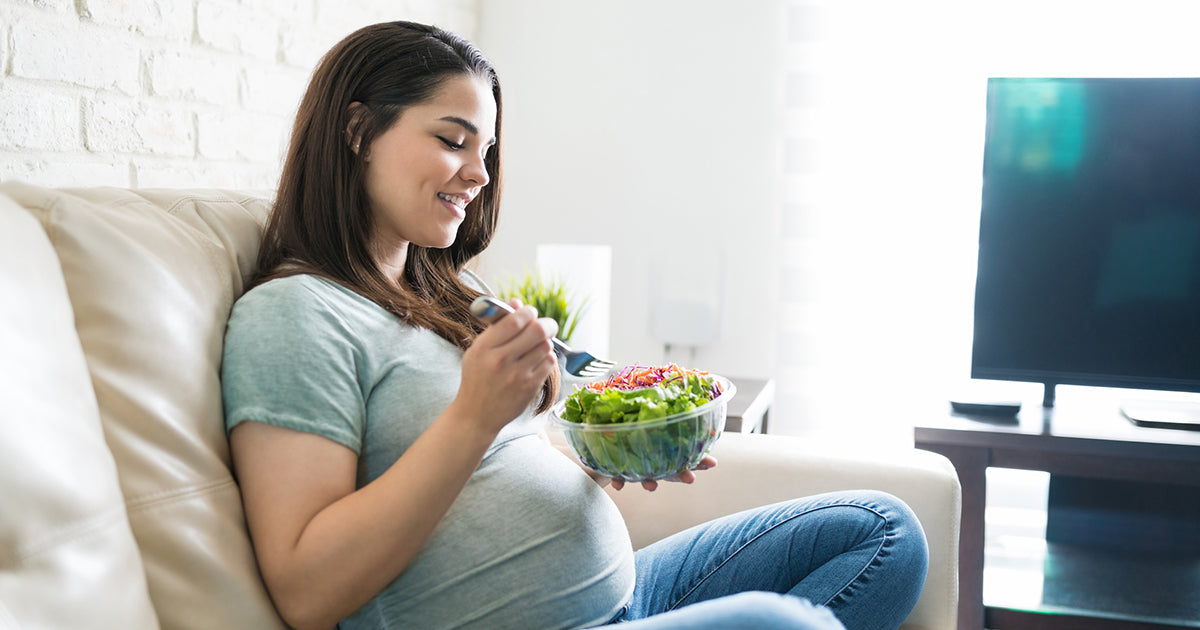Why iron is so important during pregnancy

Erin Stokes, Naturopathic Doctor, MegaFood Medical Director | March 2020
Why is iron so special?
Iron is a small but mighty mineral. So mighty in fact, that without adequate iron stores, you simply can’t get enough oxygen delivered to all of your tissues. And, that’s a big deal! The reason why is that most of the iron in our bodies is actually found in hemoglobin, whose job is to deliver oxygen from the lungs to your entire body. So it stands to reason that when people are low in iron, common symptoms can include fatigue, weakness, and difficulty concentrating.
Who’s at risk for low Iron?
According to the World Health Organization (WHO), iron is the most common nutrient deficiency in the world. Iron deficiency primarily affects women.Footnote 1 Specific populations at risk include menstruating women, vegetarians and vegans, female athletes, blood donors, and pregnant women.
Pregnant women are specifically susceptible to iron deficiency because your body needs extra iron to supply oxygen to the baby.
In the third trimester, there is also a significant increase in mom’s blood volume. Low iron becomes more of an issue as the pregnancy progresses and incidences increase each trimester from 6.9% to 14.3% to 28.4%.Footnote 2 The good news is that this is a well-known fact that health care practitioners are well aware of. Women generally have several blood tests during the course of their pregnancy to continue to check in on iron levels, in addition to other important tests.
Getting more iron in your diet
At MegaFood, we believe in food first. Supplements are second. Iron in food exists in two main forms: heme iron and non-heme iron. Heme iron is found in meat, seafood, poultry, and eggs. Non-heme iron is found in vegetarian foods such as leafy greens, beans, dried apricots, cashews and raisins. Even dark chocolate is a source of iron!
Take a gentle iron supplement
 Even with the best diet, some women may not be able to meet their iron requirements when they are pregnant. Because of the importance of iron during pregnancy, most prenatal multivitamins do contain iron, however, your doctor may recommend additional iron supplementation to meet your individual iron needs.
Even with the best diet, some women may not be able to meet their iron requirements when they are pregnant. Because of the importance of iron during pregnancy, most prenatal multivitamins do contain iron, however, your doctor may recommend additional iron supplementation to meet your individual iron needs.
A challenge that exists with most iron supplements is that they often lead to unpleasant gastrointestinal side effects such as constipation and nausea. An iron supplement such as our top-selling Blood Builder®, which was clinically shown to deliver a gentle and effective dose of iron without the side effects of nausea and constipation, can be a welcome alternative for women.*† †
With the right combination of a healthy diet, supplements, and continual check-ups with your doctor, pregnant women who are low in iron can meet their needs for this mighty mineral. More power to ya!
Interested in other products we offer that support pregnancy? Check out our full prenatal and postnatal supplement line-up or this blog which can help you find the right prenatal multivitamin for you.
Want to know what IS and ISN’T in our prenatal supplements? Learn more about our unique pocess and certifications for purity, safety and potency.
1World Health Organization 2Mei Z, Cogswell ME, Looker AC, Pfeiffer CM, Cusick SE, Lacher DA, et al. Assessment of iron status in US pregnant women from the National Health and Nutrition Examination Survey (NHANES), 1999– 2006. Am J Clin Nutr. 2011;93:1312-20. [PMID: 21430118] †D'Adamo, C., Berman, B., Chen, K., & Novick, J. (2016). Effects of a commercially-available, low-dose iron supplement (Blood Builder®) on markers of iron status among premenopausal and nonanemic iron-deficient women. (Manuscript submitted for publication.)


Leave a comment
This site is protected by hCaptcha and the hCaptcha Privacy Policy and Terms of Service apply.